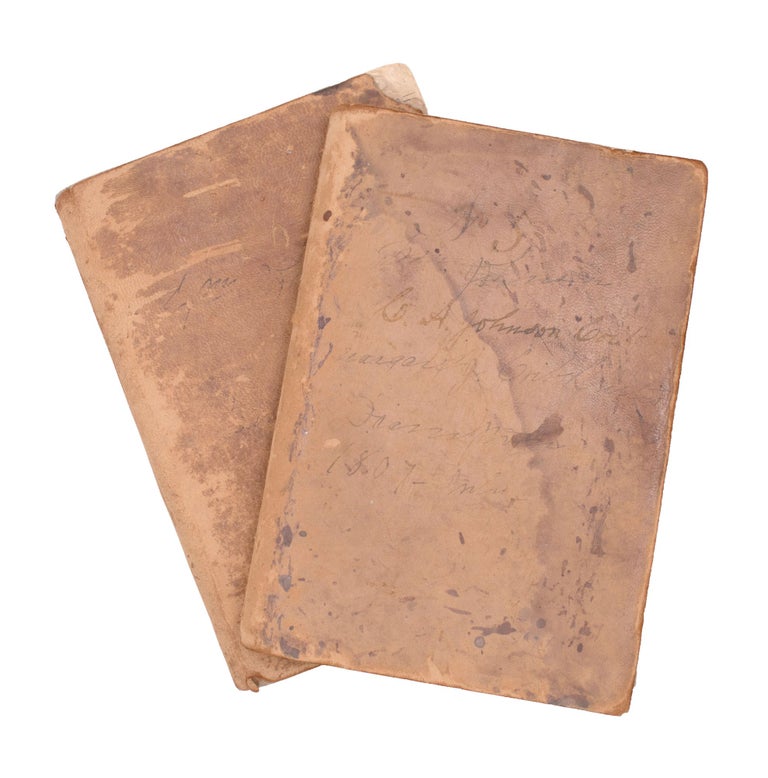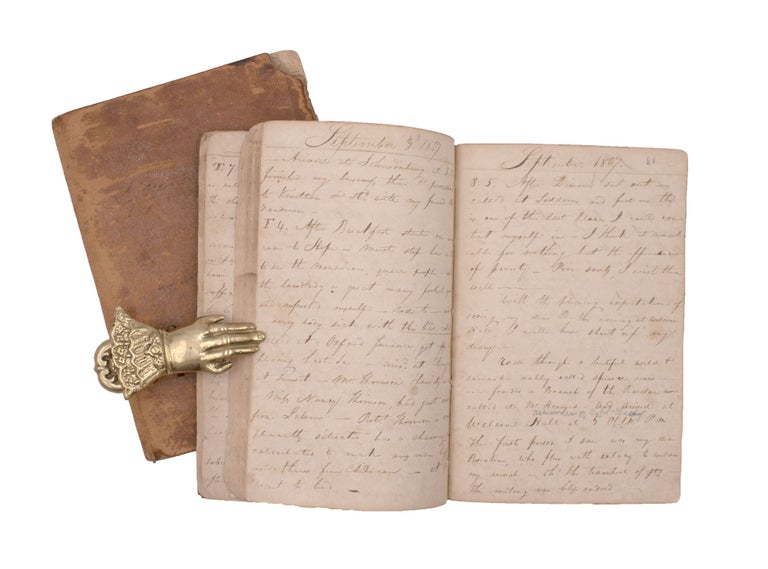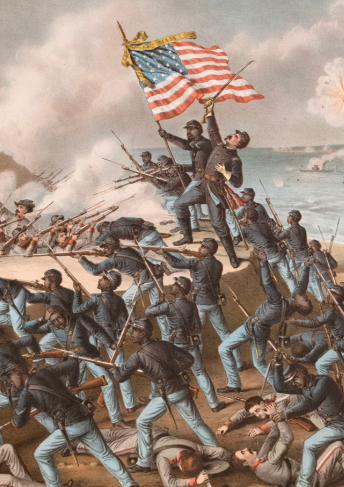Manuscript diaries of a New York and New Jersey businessman with lengthy and unusually well-written and sentimental entries on politics, the Embargo, his love and variety of issues.
New York: July 1807 to July 1811.
Price: $5,500.00
About the item
185 and 242 pages, respectively. Noted on the manuscript titles as diary numbers 5 and 6. 2 vols. 8vo. Contemporary flexible reverse calf. Insect damage to first five leaves of the second volume, with minor losses. Housed in a cloth box. See Proceedings of the New Jersey Historical Society, New Series, Vol. 7 (1922) and Vol. 8 (1923).
Item #338970
Born the son of Revolutionary war officer Captain Henry Johnson, William Johnson "spent his early days in Newton [New Jersey], where his father was one of the founders of the Presbyterian church, and an elder of it from its organization until his death. He was a young man full of life and activity, and also versatility, with a special tact for business in which he was chiefly successful as a New York merchant his health failed, when he retired to a farm at Luntilebanon, Hunterdon county, where he died in 1828 at the age of forty-nine" (Proceedings of the New Jersey Historical Society, Vol. 7, January 1922, p. 49).
Beginning in 1800, Johnson began keeping a daily diary, an activity he continued for the next thirteen years. Extremely unusual for his time and gender, as a diarist Johnson provides extraordinarily detailed entries on a variety of personal, literary and political subjects, all written in dramatic, indeed sometimes loquacious, prose. (For example, an entry on a visit to Passaic Falls in May 1808: "On viewing this awful display of nature, the imagination is wrought up to the highest stretch of admiration. Whether we note the tremendous roar, the impetuous velocity, the foaming surge, the hideous rocks, the transcending spray that sometimes forms a beautiful rainbow, we are lost in the grandeur and magnificense of the scene.") Johnson's unusual sentimentality is evident throughout, and not surpisingly was a published poet with submissions appearing within The Museum, with some poetry included within the diary as well. Entries declaring his undying love for his fiancee/wife Susan Bray (whom he often refers to as Rosaline, married on May 10, 1809), on the great expanse of the stars and universe, and a self-reflecting entry on his own diary writing are particularly memorable.
The present volumes, identified on the titles as numbers 5 and 6, cover the period from July 1807 to July 1811 while a businessman in New York and New Jersey, with frequent travels into the New Jersey countryside. Although some of the diary is dedicated to his business (detailing his investments and profits trading goods with his partner John Vanderen and on a Somerville land lottery) and social relations, much is dedicated to other matters. An ardent Federalist, many entries are vehemently anti-Jefferson and anti-embargo act, railing against the "hot-headed" Democrats. His entry on March 3, 1809: "This day, thank God, the tyrannical Presidency of Thomas Jefferson terminates and he takes the rank of a provate citizen. I hop in his retirement that he will repent of the unnumerable sins and transgressions, the cruel tyranny and oppression and the maladministration of the eight years of his reign in the Presidency. If he does not, woe betide him in the world to come." Notably, Johnson was anti-slavery as well. His Jan. 1, 1808 entry: "This day forms a new era in the annals of history. It is a day which will long be remembered with philanthropy and humanity, in that it forever vanishes the cruel and savage custom of dealing in human blood. An Act of our Congress this day goes into effect to prohibit the importation of slaves..."
Between January 1922 and October 1923, excerpts from all his diaries, including excerpts from the present two volumes, were published within the Proceedings of the New Jersey Historical Society from the originals then in possession of a descendant. Most of those published excerpts, however, are from earlier volumes. The present whereabouts of the other volumes is unknown.



